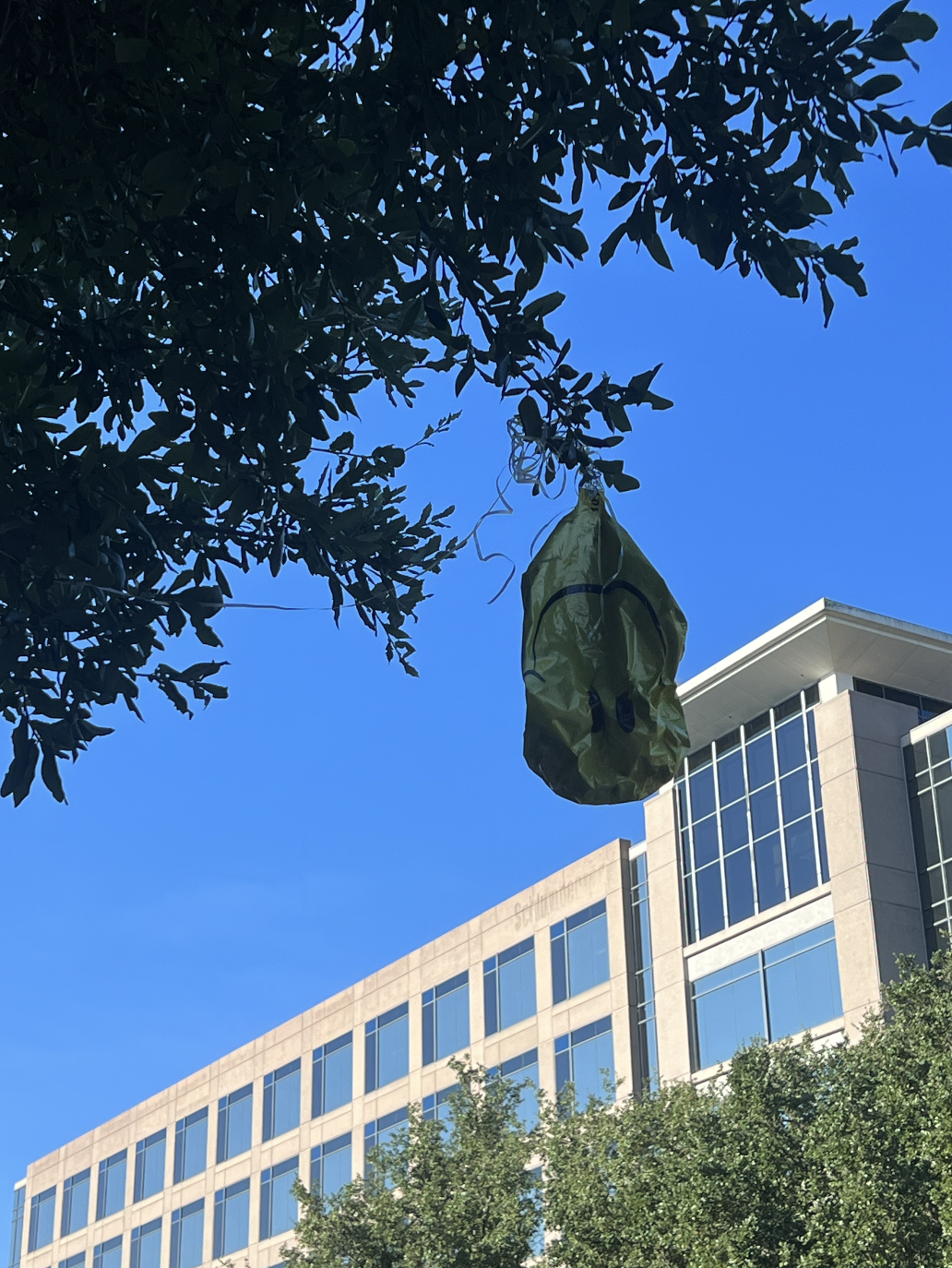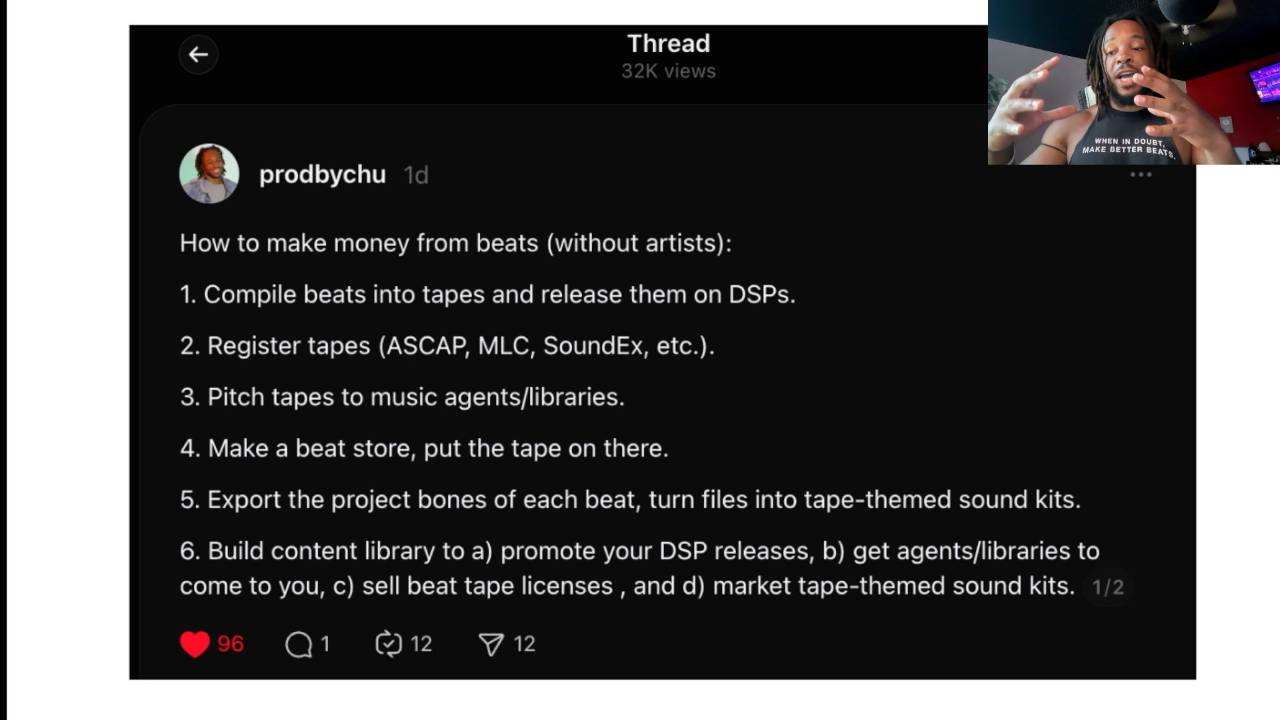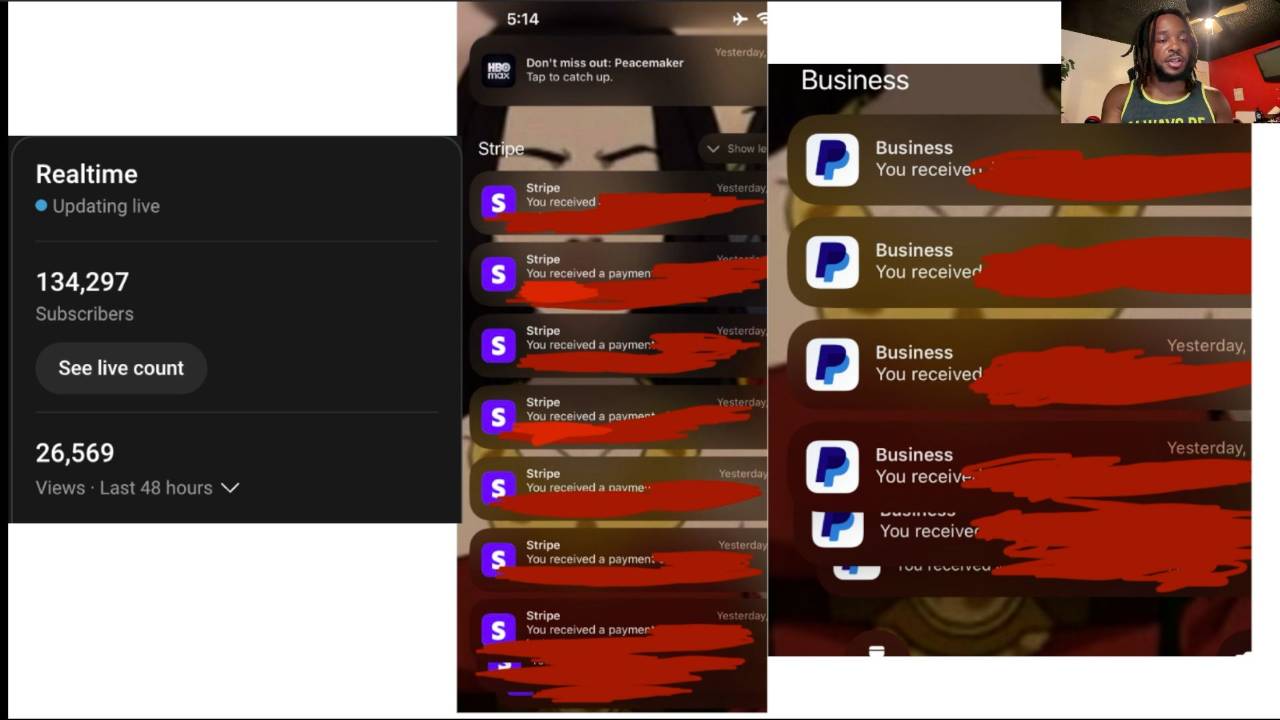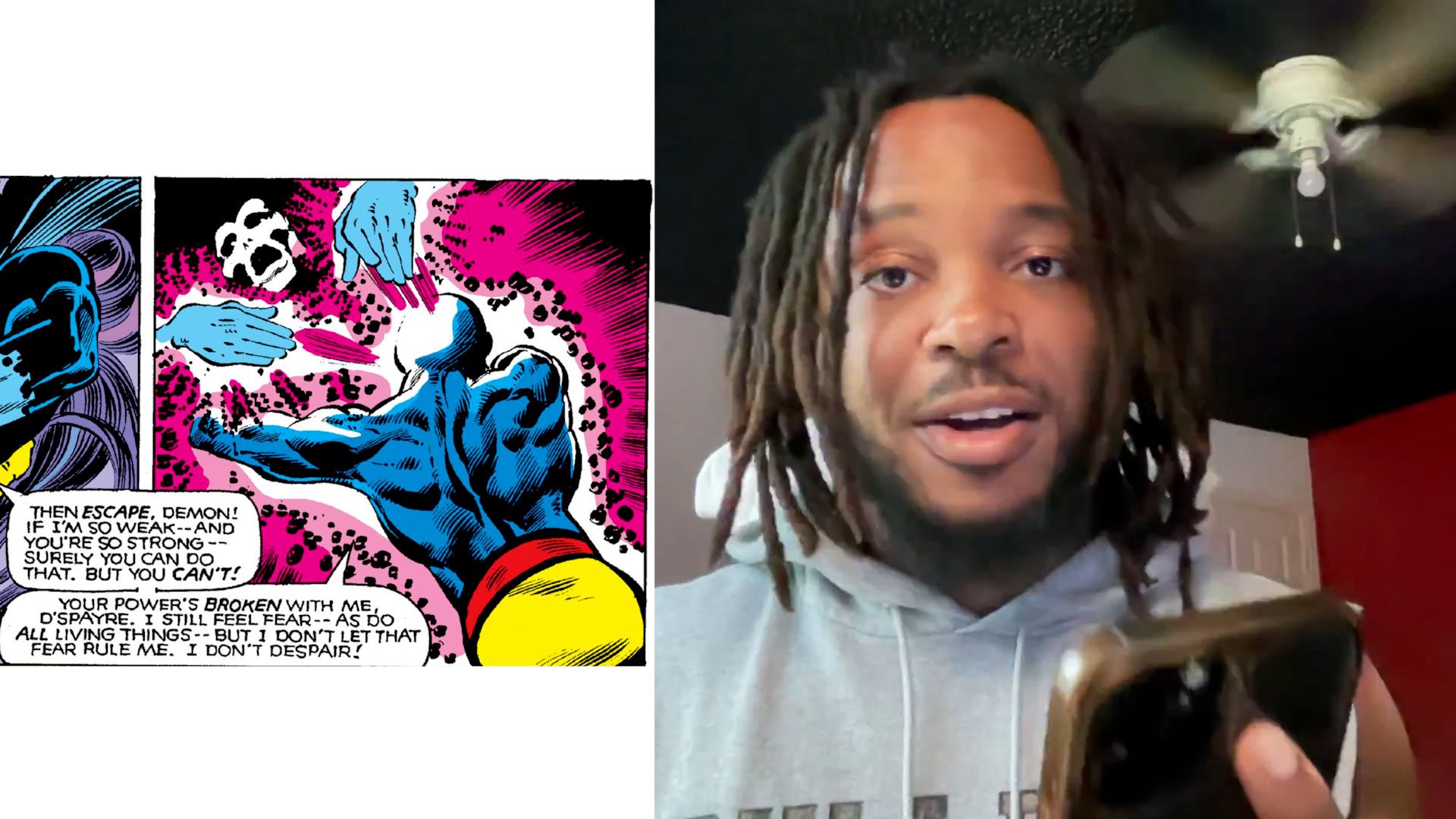
Enjoy this weeks’ DOPE 5x5 (new style for the newsletters).
-
5 tips for becoming a more valuable producer.
-
5 Rick Rubin quotes that’ll help you anchor yourself in the practice of increasing your value.
-
5 images that made me think about my value as a producer.
-
5 videos that will help you increase your value.
-
5 fire loops (and how you can use them to collab with me)
Beat makers don’t deserve 50 percent.
I used to want to set the sky of fire when I heard artists say they don’t want to pay the producer 50%.
I believed producers deserved half of everything (no matter the circumstance).
After all, how can they rap or sing with no instrumental?
As my career has progressed, my perspective has shifted.
I’ve learned about how important engineering is. Beats don’t matter if they don’t sound good through the speakers/headphones.
And I’ve realized that if a song drops and no one is around to hear it, then it basically didn’t drop (marketing is difference making).
Artists do everything.
-
Writing and performing the lyrics.
-
Paying for engineers, studio time, and music videos.
-
Building a fan base (and marketing to them).
The only thing they don’t do is make the beat.
Beat makers bring nothing to the table outside of an instrumental.
And the artists could get that for cheaper or free somewhere else (price gouging amongst producers, AI beats, etc.).
I no longer believe someone should get 50% for just making the beat.
No one needs a beat maker.
There aren’t too many artists who’re still willing to split 50% with beat makers who aren’t contributing significantly to the final product.
Looking at it objectively, it’s the artist who makes it happen.
The beat maker is replaceable.
They are a commodity (a dime a dozen).
Artists don’t need beat makers because they can get the beat from anywhere (beat makers are interchangeable).
They need producers.
A beat maker creates the instrumental - that’s it.
A producer moves the artist’s career forward through various means of leverage (you can make the beat, but that’s not the only thing you can do to help).
Bring more to the table.
If you become more valuable to the artists, it’s less reasonable for them to replace you.
You have more ways to keep serving the same artists (even if you don’t make the beats sometimes).
You go from just some guy who made the beat to a vital part of actualizing the creative vision.
That’s the difference between a beat maker and a producer.
To reach this point, bring more to the table than just beats.
Your beat must be top tier, but it can’t stop there.
Build skills and develop tools you can leverage to serve the artists and further their career.
The more they associate you with their career progress, the more they’ll call on you for work.
5 steps for going from beat maker to producer.
Our goal is to become more valuable to the artists we work with.
The more valuable we are, the less likely it is that we’re replaced by someone price-gouging our beats.
Here’s 5 steps you can start using today to become more valuable to the artists.
#1 - Make loops (get better at making melodies).
This is important for a few reasons.
First, if you can make your own melodies, that means you can make beats all on your own.
Melody making (along with mixing make you a one-stop-shop for your artists.
(There’s also fewer people to split the pie with in publishing).
Second, you have more collaboration opportunities.
You can get more beats done by sending loops out to your homies.
Third, you’ll get better at making melodies.
Improving your skills means you can make content about that skill (which helps you market the songs your artists make).
#2 - Build your brand (with writing, speaking, sales, and marketing).
Learn marketing skills and use them to build a brand.
You’ll provide value to your fellow producers.
And you’ll also have a fan base you can market your artists’ songs to.
You won’t just be the beat maker.
You’ll become a collaborator invested in the song's success.
#3 - Create content (about melody making and marketing).
Create content about the skills you're using to help your artists.
It should relate to the actual songs they’re releasing (this will help the song gain more attention by reaching the fan base you’ve created).
You can also create one-off content pieces that provide value to your audience and further build your reputation with them.
#4 - Release your own music.
Release your own music to the following you’ve built.
A producer is just an artist that doesn’t rap.
Your beats can do double duty by becoming your singles and beat tapes you post to DSPs.
This approach puts you in the mindset that you’re an artist collaborating with the rappers and singers who use your beats.
This also gives you another way to help the artists market. You can set up the song release as a collaboration between both of you (increasing its reach on DSPs).
Check out this blog post to learn how to build your following on Spotify.
#5 - Run the best performing ideas into the ground.
This is the ultimate strategy for growing as a creative.
When you find something that works, stick with it.
We know most creatives for one specific creative style.
This doesn’t mean you can’t change it up and experiment (you might find something else that works this way).
But you should 100% “feed the hot hand.”
If the artists like a certain beat, make more of that style.
If a certain song did well, dissect and repeat the process.
Work with the artists to further their careers (and, thus, your own).
Bring more to the table so that you present yourself as someone invested in their career success.
Don’t be a beat maker looking to make a quick $30 lease sale.
Become a producer that builds artists.
5 quotes.
Here are 5 quotes I found in my reading and studies this week (all are from ‘The Creative Act’ by Rick Rubin). Follow by a few of my own thoughts.
#1 - Impatience
“Impatience is an argument with reality.”
Patience is a crucial career making virtue for musicians.
Accept that it is a process.
Be down for the ride (play the long game).
#2 - Intent, attention, focus.
“Consider how different your experience of the world might be if you engaged in every activity with the attention you might give to landing a plane.”
The common conception is for artists to be lackadaisical.
To stumble upon success through feeling alone.
Those who do the opposite are the standouts.
-
Jay-Z
-
Kanye
-
J. Cole
-
Rick Rubin
Each is a demonstration that effort and focus are vital for creative success.
#3 - Rules.
“It’s a healthy practice to approach our work with as few accepted rules, starting points, and limitations as possible. Often the standards in our chosen medium are so ubiquitous, we take them for granted. They are invisible and unquestioned. This makes it nearly impossible to think outside the standard paradigm.”
A rule is not a mode of operation you dislike because it’s difficult (like learning music theory or business marketing).
A rule is the most widely spread, commonly held belief.
Some “rules” that limit musicians are:
-
We can be lazy and see success.
-
Consumers should come to us just because (instead of us make it attractive for them to come to us).
#4 - Get good at thinking inside the box first.
“Often, the most innovative ideas come from those who master the rules to such a degree that they can see past them or from those who never learned them at all.”
Don’t think outside of the box until you can think well inside of the box.
Or unless you plan on being a 1 in 100 million wunderkind.
Don’t bet on luck (if you want my advice).
#5 - Patience is a virtue.
“If there is a rule to creativity that’s less breakable than the others, it’s that the need for patience is ever-present.”
Patience is inevitable (for those who will succeed).
We cannot cheat the path.
Patience is not sitting and doing nothing. It is doing the (often boring) work overtime to get the desire result.
5 images.
#1 - Goofy Sasuke

This image is just hilarious to me (so I hope it makes you laugh as much as it does for me).
Many people don't know I'm a true weeb. Anime is one of the most inspirational things to me.
That's one way I separate myself as a producer (which makes me more valuable).
It give me a unique style, and something to relate on with other people.
#2 - My guitar preset.

I get the question in a lot of social media post when people hear my guitar melodies.
The preset I use is from FLEX and it's called the Ace Nylon MK1 (in the Essential Guitars preset pack, which is free).
#3 - Gratefulness
I managed to catch myself in the flow earlier this week (and quickly snapped this photo).
I'm just really grateful for my career.
Every part, from content creation to the A&R work I do.
But nothing feels better than sitting down with a cold brew, turning on some anime, and making beats.
#4 - In nature.

I caught this sunrise during a walk.
Or maybe it was a sunset (I can't remember).
Rick Rubin has a quote about the importance of nature's influence on our creative work.
I'll try to include that in next weeks' 5x5.
#5 - Perspective.

I saw this deflated balloon stuck in a tree branch during a calisthenics session outside.
For some reason it made me think about how crucial perspective is.
Especially as a creative.
We have to find ways to re-frame everything that happens to us.
And use the new frame to create things that help us grow, serve, and communicate.
5 videos
1. How I Make Dope Guitar Melodies (Chord Pattern Explanation)
A clip from one of the streams this week where I fully explained my process for making guitar melodies.
2. GMS Is Better Than Omnisphere For Making BEAUTIFUL R&B MELODIES & BEATS (FL Studio 21 Cook-up)
A demonstration of how a make R&B melodies from scratch.
3. FLEX Is Better Than Omnisphere For Making DARK GUITAR MELODIES & BEATS (FL Studio 21 Cook-up)
A demonstration of how I make guitar melodies from scratch.
4. XPAND Is A CHEAT CODE For Making FIRE DARK TRAP MELODIES & BEATS (FL Studio 21 Cook-up)
A demonstration of how I make dark melodies with bells.
5. Rick Rubin: Legendary Music Producer | Lex Fridman Podcast #275
I've been studying Rick Rubin a lot lately.
Here's an interview he did with Lex Fridman (I learned a lot about Rubin's perspective by listening to this and taking notes on it).
5 melodies
Here are 5 loops I made this week (enjoy!)
These loops are royalty free (this page will answer all your questions concerning usage).
If you have the Centerfold Drum Kit, you'll be contacted to send in your beats made with these loops so I can send them to my artists.
Get Sound Kits 👇






